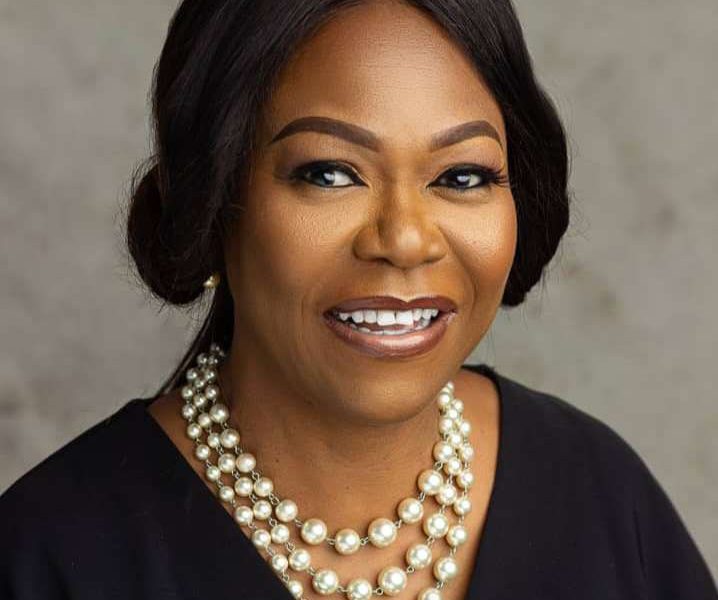NEW YORK — In former Japanese Prime Minister Shinzo Abe, Washington found a strong ally who originated the idea of a free and open Indo-Pacific to counter growing Chinese power in the region. But now it prepares to deal with a new leader in Tokyo, Fumio Kishida, who may represent a new era of politics at a time of heightened doubts over the dependability of American commitments in the wake of the disordered exit from Afghanistan.
Kishida, a foreign minister under Abe, was chosen as the president of Japan’s ruling Liberal Democratic Party Wednesday. He will officially be elected prime minister on Monday.
While the big picture remains unchanged — a tight-knit alliance with the U.S. and fear of an increasingly assertive China — analysts say that Kishida’s ascendance comes at a crucial time for two reasons: One, because the U.S. is looking to Japan to take a bigger role in maintaining security in the Indo-Pacific, and two, because the messy withdrawal from Afghanistan exposed the potential weaknesses in the current arrangement.
“This certainly marks the end of the Abe era and it’s a new chapter in Japanese politics,” said Mike Mochizuki, the Japan-U. S. relations chair at the Elliott School of International Affairs at George Washington University.
The U.S.-Japan relationship flourished under the Abe administration. Abe’s nearly eight years in power, making him the longest-serving prime minister in Japanese history, brought stability to the alliance and enabled Washington and Tokyo to align strategies under the banner of a “free and open Indo-Pacific.”
Abe’s successor Yoshihide Suga had served as chief cabinet secretary — the enforcer of the prime minister’s policies — for the entirety of Abe’s rule and was widely seen as a continuation.
Mochizuki noted that while Americans may hope to see Kishida as “the third chapter” of the Abe era, that would be “wrong, incorrect and wishful thinking.”
The differences in economic policies have been widely noted. While Abenomics has been credited for lifting Japan out of the “lost two decades” of economic growth, spearheaded by Bank of Japan Gov. Haruhiko Kuroda’s monetary easing and weaker-yen policies, Abe was slammed for doing little to stem inequality. Kishidanomics calls for income redistribution to rebuild a broader middle class, which has a distinctly different connotation.
But Mochizuki sees differences in Kishida’s foreign policy as well.
“Kishida continues the line of mainstream LDP politics, the Tanaka-Ohira line, of seeing the importance of relations with China and doesn’t want to be in a confrontational stance,” he said, pointing to the policies of former Prime Minister Kakuei Tanaka and his Foreign Minister Masayoshi Ohira, who normalized diplomatic relations with China in 1972.
This stands in contrast to the “very hawkish and anti-China view” advocated by former Internal Affairs Minister Sanae Takaichi, who Abe supported in the LDP race. Takaichi’s surprise strong showing on Wednesday, coming ahead of vaccination czar Taro Kono among Diet members’ votes, reflected the sizable presence of the LDP’s hawkish wing.
Mochizuki also noted that Kishida represents a view that although the U.S.-Japan alliance is important, “America is kind of unpredictable, unreliable, and Japan shouldn’t have all the eggs in the U.S. basket.”
That debate may gain traction in the post-Afghanistan world. “There’s going to be a debate about working with other states,” such as Australia, the U.K., France and Germany, rather than framing geopolitics in a bipolar U.S.-versus-China lens, Mochizuki said.
 In 2014, then-U.S. Secretary of State John Kerry shows Fumio Kishida the desk where the 1783 Treaty of Paris, ending the Revolutionary War, was signed at the State Department in Washington. (Photo courtesy of the State Department)
In 2014, then-U.S. Secretary of State John Kerry shows Fumio Kishida the desk where the 1783 Treaty of Paris, ending the Revolutionary War, was signed at the State Department in Washington. (Photo courtesy of the State Department)
Jeffrey Hornung, a senior political scientist at Rand Corp., also said the experience in Afghanistan may have an effect on the U.S.-Japan alliance.
“The biggest shock has been the inability or the unwillingness of the Afghan security forces to do anything,” Hornung said. “This belief that we can train our allies, train our partners and they’ll stand up and fight was proven wrong. Nobody thought they were going to give up without firing a shot.”
That miscalculation has triggered a rethink in the Pentagon, Hornung added. U.S. officials are looking at their allies and partners throughout the world and asking, “If that ally is engaged in a big fight with China, how are they going to react?”
Japan’s ineffective rescue operation in Afghanistan did not boost confidence. After belatedly sending an Air Self-Defense Force plane to Kabul, it only managed to evacuate one Japanese civilian and 14 Afghans.
“That caused people to shake their heads and say, ‘that was a noncombat operation. Why was that so problematic? That should have been a hole-in-one.’ And it wasn’t,” Hornung said.
This is a crucial juncture for the U.S.-Japan alliance. At the next two-plus-two meeting of foreign affairs and defense ministers, likely to be held this year, the two allies will discuss in detail “roles, missions and capabilities,” so as to prepare for a confrontation with China. Whereas America and Japan’s roles have always been compared to a spear and a shield, expectation is that Japan will take on some “spear” roles as well.
Michael Green, senior vice president for Asia and Japan chair at the Center for Strategic and International Studies, said the talks will be comparable to the 2015 introduction on new security laws in Japan that allowed the Self-Defense Forces to exercise collective self-defense.
“The defense guidelines, the new interpretation of the constitution to allow collective self-defense, that all happened in 2015. It was a huge step forward in the alliance. Now we’re looking at the next mountaintop, the next big task, and I think that is to make the alliance ready for contingencies,” he said.
On the list of proposals is to increase defense spending, conduct large scale exercises with allies and partners, and acquire the “spear” capability, whether it be long range, precision-guided anti-ship missiles or Tomahawk missiles.
Green called it an important time for the U.S. “because we are pivoting to the Indo-Pacific, and the success of that pivot hinges very heavily on Japan.”
Kevin Maher, a former State Department official in charge of Japan affairs, said Kishida’s position will soon be revealed through the budget.
“The priority of the government is reflected in the budget. There’s an expectation in the U.S. that Japan will not just continue to increase its defense capabilities but fully accelerate that increase,” Maher, now a senior adviser for Japan at NMV Consulting, said.
During the LDP race, hawkish candidate Takaichi proposed lifting Japan’s defense budget to 2%of gross domestic product from the current 1%. That would require an additional $45 billion.
“Realistic people in Washington do not expect Japan to all of a sudden double its defense spending relative to GDP, but there needs to be a robust increase in defense capabilities which requires budgets,” Maher said.
Maher expects Kishida — who was Abe’s foreign minister for close to five years and a member of his National Security Council — to stick to Abe’s path and have a more robust response to China.

One issue that will be brought up by the Americans at the two-plus-two is hosting U.S. ground-based missiles in Japan to deter China from taking action in the Taiwan Strait. Such a basing of weapons may attract strong opposition from the local Japanese community.
“The issue of basing intermediate-range missiles is going to get a lot of discussion in the next few months,” Maher said. “I suspect by the end of the year, early next year, there will be at least informal discussion about them with Japan.”
Whether Japan agrees to hosting such capabilities is expected to be a major debate in the LDP.
“It was interesting how prominent the defense issues were in the leadership race,” said Sheila Smith, senior fellow for Asia Pacific studies at the Council on Foreign Relations.
“It’s clear that in the LDP today, you have a significant sense of support for a far more robust defense posture,” she said, pointing to the performance of Takaichi. “She talked about hosting U.S. missiles and 2% of GDP for defense. What politician has argued that on the way to the prime ministership?”
Rand’s Hornung said Kishida will not be able to ignore the hawkish wing of the party led by Abe and Takaichi.
While that wing sided with Kishida in the runoff, “if any part of the LDP is going to be ready to pounce or to jump ship, it’s probably going to be that one,” Hornung said.
“Kishida is going to have to really think about his agenda. It’s not going to change U.S. importance, China or the free and open Indo-Pacific, but you’re going to have to think about the tactical stuff, because there is an element that could be ready to pounce on you, if you make some tactical mistake.”
George Washington’s Mochizuki said that while the four candidates in the LDP race, with the exception of Takaichi, avoided addressing such issues as U.S. missiles and the defense budget so as not to alienate certain factions, there are “very different views” in the party.
“Although everyone agreed about the U.S.-Japan alliance being very important, everyone agreed about the concerns about China and everyone agreed that Japan needs to take more responsibility regarding defense, there are differences and nuance which reflect a deeper division within the LDP,” he said.
“There’s a real split. It’s like a tug of war. We’ll see how it develops.”
Note: This article have been indexed to our site. We do not claim ownership or copyright of any of the content above. To see the article at original source Click Here











